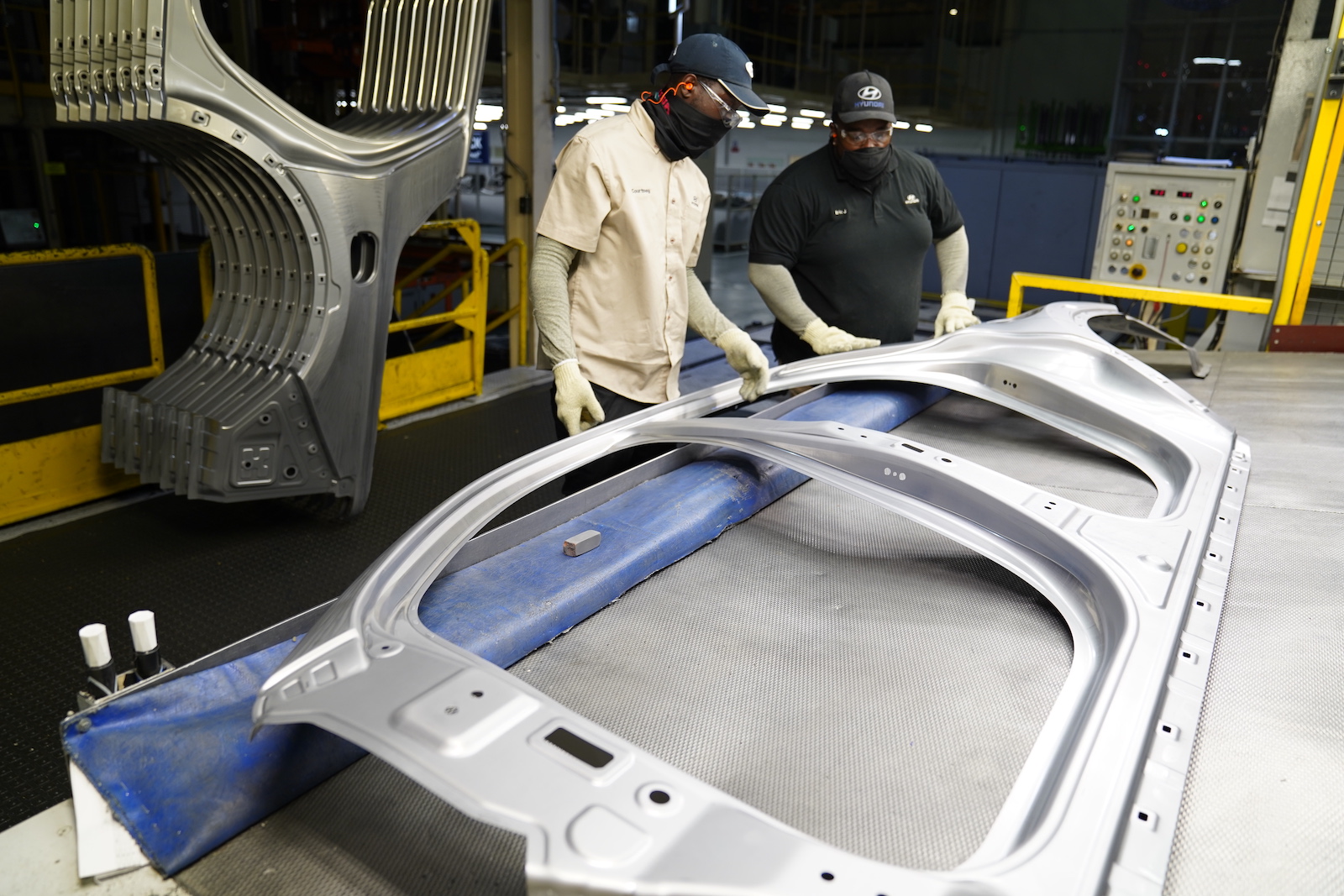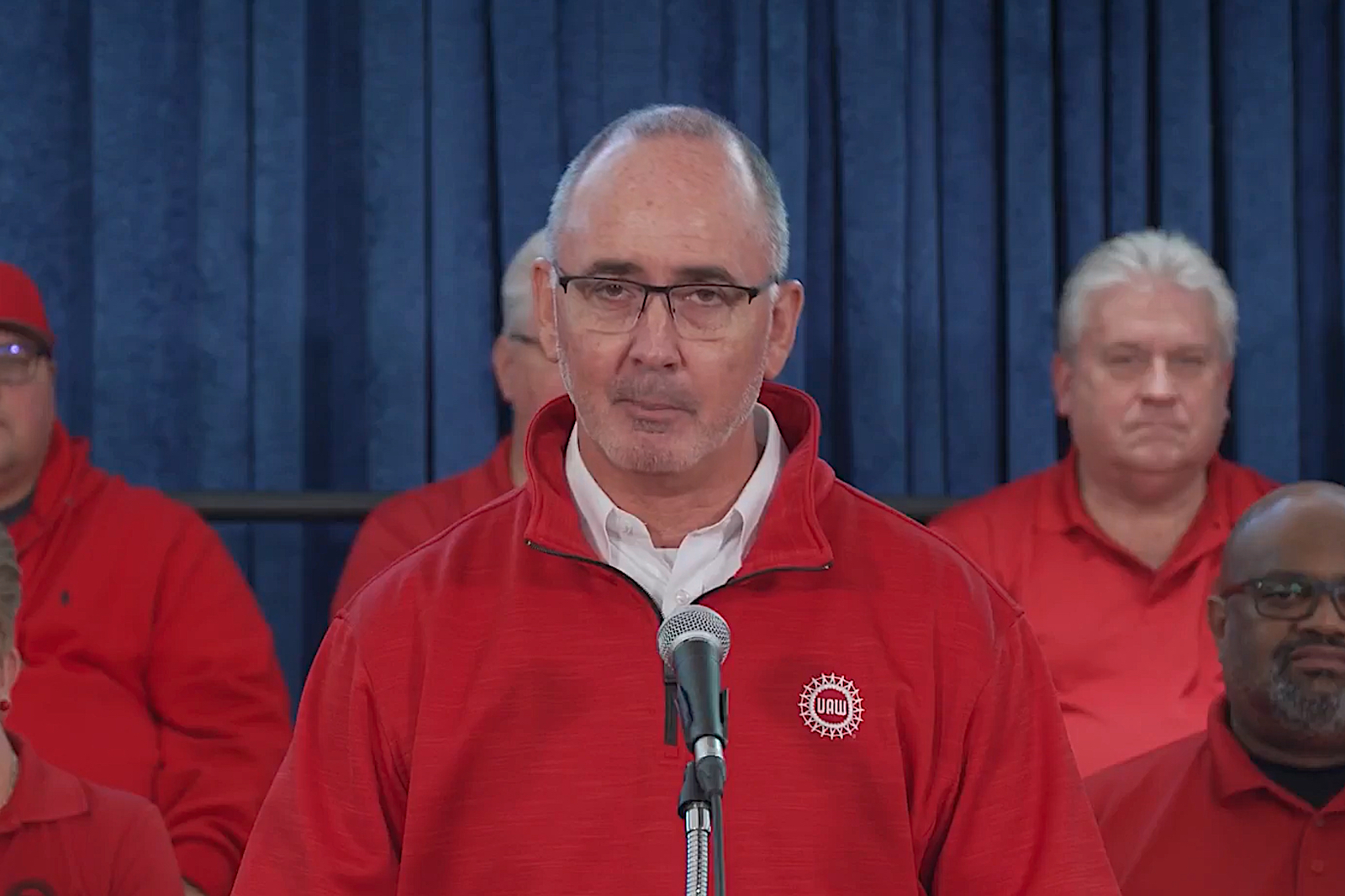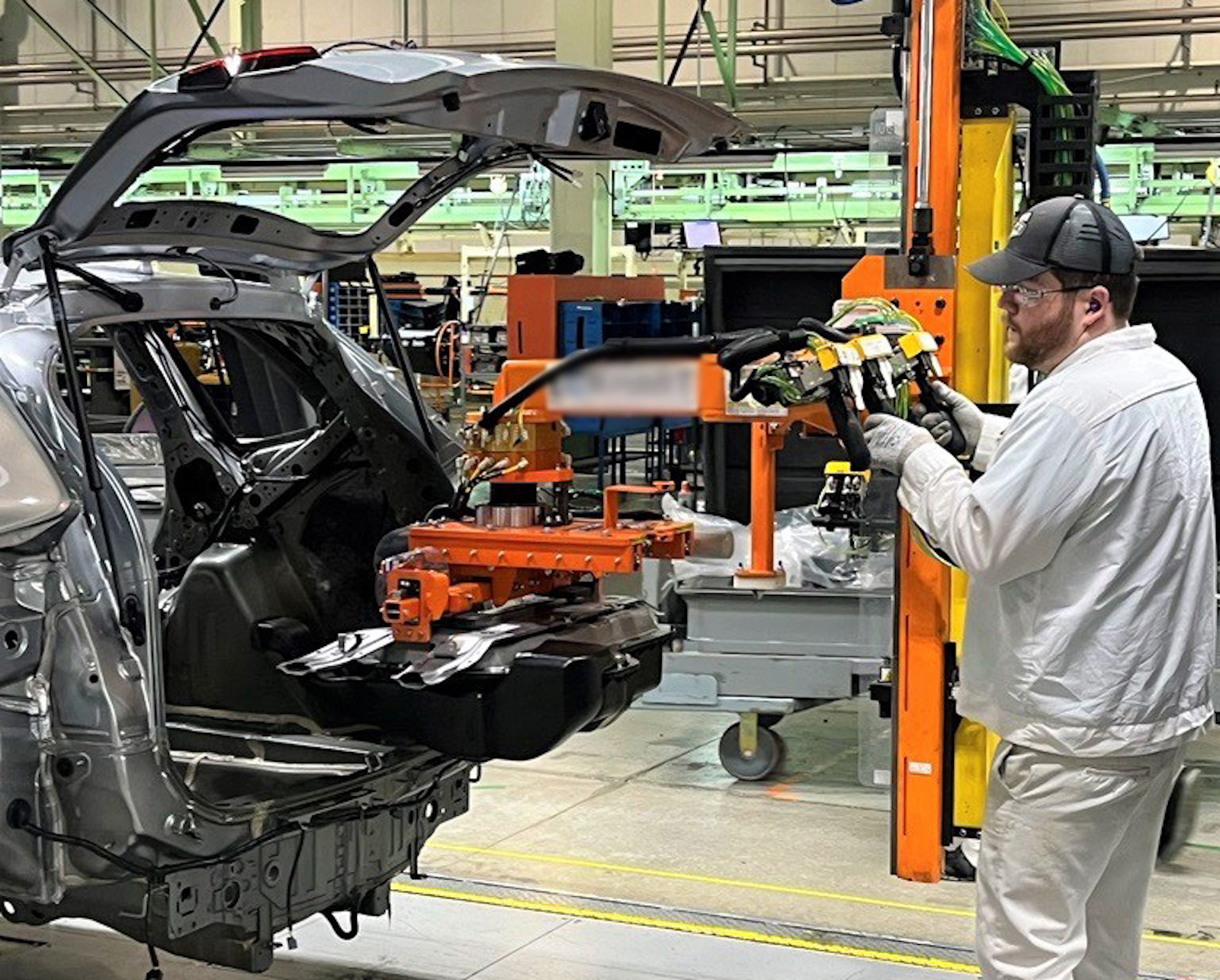The 150,000 UAW members at Detroit’s Big Three aren’t the only ones benefitting from the new tentative contracts with General Motors, Ford and Stellantis. Three foreign-owned manufacturers have announced similar wage hikes for their own U.S. workers — hoping to keep them non-union.

Hyundai is the latest transplant automaker to give its hourly workers raises in the wake of the UAW’s new contract.
The 4,000 hourly workers at the big Hyundai plant in Montgomery, Alabama will get a 14% pay hike next year, with wages set to rise 25% by 2028.
Toyota and Honda already announced similar raises since the United Auto Workers union ended its six-week strike against the Detroit Big Three last month. And industry observers say they expect to see other “transplant” facilities raise their own wages in a bid to keep workers happy and ready to resist the organizing drives UAW President Shawn Fain has signaled are in the works.
Good news for Detroit’s Big Three

UAW President Shawn Fain is readying an organizing effort at the transplant automakers as well as Tesla.
The wage hikes actually come as good news for GM, Ford and Stellantis which are expected to see annual labor costs rise sharply — with many hourly workers expected to see annual earnings rise to $100,000 or more once hourly pay, overtime, bonuses and profit sharing are factored in.
The transplants were typically paying about $10 an hour less than the Detroit manufacturers before the latest UAW contract was negotiated, according to industry data. The gap could have grown even more, giving the foreign brands significant cost advantages against the domestic automakers.
Hyundai “continuously strives to maintain competitive wages and benefits commensurate to industry peers,” Jose Munoz, the CEO of Hyundai Motor North America, said in a statement.
The automaker had already given its workers in Alabama a raise earlier this year.
Kia could follow
It’s planning to match the new plan once it opens a second U.S. manufacturing complex in Georgia in January 2025. That “Metaplant” will employ an estimated 8,500 workers and will produce both EVs and the batteries they require.
It will supply products to all three South Korean brands, including Hyundai, Genesis and Kia. All are run by the South Korea-based Hyundai Motor Co., though they operate as independent companies in the U.S.

After the six-week long strike, UAW workers got a 25% wage increase over the lifetime of the 4.5-year deal.
Headlight.News reached out to Kia to see if it plans to match the wage hikes announced by its sibling. Spokesman James Bell said there is “nothing to announce at this time.” But Kia typically mirrors the wage and benefit policies at Hyundai in the U.S.
Toyota and Honda also respond to UAW settlement
Toyota already said it would raise wages for its non-union American hourly workers by 9.2% in the wake of the UAW settlement. The Japanese giant operates a number of U.S. plants, including the Camry line in Kentucky and the Tundra factory in Texas. It had already given workers raises twice this year. With the new increase the typical hourly employee will receive $34.80 an hour in wages.
Honda last week announced an 11% raise of its own, noting that it “continue(s) to look for opportunities to ensure (it) provides an excellent employment experience for Honda associates.”
While the various foreign-owned brands are bringing wages closer to what UAW members will be paid, they’ll still maintain an advantageous gap in both pay and benefits. And, analysts note, the non-human plants will have greater flexibility than Detroit manufacturers, with fewer work rules that can impact productivity.
UAW again aims to organize the “transplants”
In the four decades since the first transplant opened, a Honda plant in Marysville, Ohio, the UAW has repeatedly tried to organize workers. So far, however, it has failed. The handful of votes, including the most recent one at the Volkswagen plant in Chattanooga, Tennessee, have gone against the union.
Following the end of the strikes in Detroit, however, Fain said, “We need to organize like we’ve never organized before.”
During a Facebook Live conference earlier this month, the union chief added, “Our goal is to spend the next few years organizing auto workers across this country. The Big Three aren’t the only auto companies making record profits. Auto workers at Toyota, Volkswagen, Hyundai and Tesla — they deserve record contracts, too, and we’re going to do everything we can to support them in the fight to win what they deserve.”
Union’s future is on the line
The promised organizing drives could prove critical for the UAW’s future. The union represented a record 1.5 million U.S. workers in 1979, almost all of them employed by the Detroit manufacturers — which, at the time also included the old American Motors.
Today, that membership has plunged to just 383,000, with only 150,000 working in the auto industry. The union’s biggest successes have come from organizing drives in other areas, including workers in government and medical fields.



0 Comments